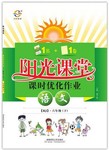题目内容
书面表达
请根据自己的经验,以Ways of Making Friends为题写一篇英语短文。
内容包括:
1. 每个人都需要朋友,如何交友极为重要。
2 列举交友方式 (例如对他人友好;记住名字等)
注意:1 词数 100左右;
2 可以适当增加细节,以使行文连贯;
3 短文中不能出现与本人相关的信息。
练习册系列答案
 阳光课堂课时优化作业系列答案
阳光课堂课时优化作业系列答案
相关题目
题目内容
书面表达
请根据自己的经验,以Ways of Making Friends为题写一篇英语短文。
内容包括:
1. 每个人都需要朋友,如何交友极为重要。
2 列举交友方式 (例如对他人友好;记住名字等)
注意:1 词数 100左右;
2 可以适当增加细节,以使行文连贯;
3 短文中不能出现与本人相关的信息。
 阳光课堂课时优化作业系列答案
阳光课堂课时优化作业系列答案